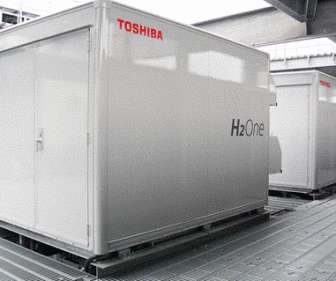Toshiba integrated hydrogen energy system starts operation at Toranomon Hills Business Tower in Tokyo
Green Car Congress
JUNE 21, 2020
Toshiba Energy Systems & Solutions Corporation (Toshiba ESS) announced that its hydrogen-based autonomous energy supply system H2One, which Toshiba ESS delivered and installed on the rooftop of Toranomon Hills Business Tower (Minato-ku, Tokyo), has started full-scale operation with the opening of commercial facilities.












Let's personalize your content